 Hello there! 😀
Hello there! 😀
Elon Musk doesn't often lose, so the Delaware court's cancellation yesterday of the 52-year-old's $55.8bn (£44bn) pay deal, awarded to him in 2018 by electric car company Tesla, must have triggered unusual emotions, especially as his total fortune is estimated at "only" just over $210bn. But has his rise and rise ended? Will he, like Icarus, finally fall to earth? I doubt it. Tesla, Inc. is arguably Elon Musk's most well-known venture. As most of us are aware, Tesla specialises in electric vehicles (EVs), battery energy storage and solar products. Musk has been instrumental in pushing the automotive industry towards sustainable energy. Tesla also works on autonomous vehicle technology. His website describes him as "the Technoking of Tesla" ... That's a compelling but in my view understated designation. If Tesla was Musk's sole venture, the expression "Technoking" would be apt and well-deserved. But frankly we should dismiss such a parochial term and consider him much more as a global figure with, as an individual, as much influence now as many of the most prominent figures in world history - and, potentially, the most powerful individual in the history of the world. Maybe "Technoemperor" is a better title. There's a really impressive synergy in the structure of his portfolio of large enterprises. In a way they bring a whole new meaning to the term "corporation" ...
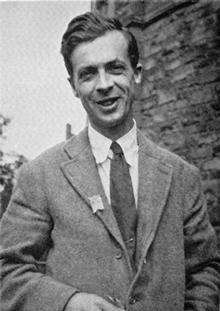
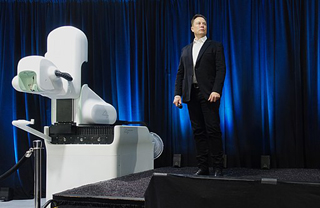
Musk was welcomed with open arms by the Chinese government when he met China's foreign, industry and commerce ministers last year. I've no doubt the main item on the agenda was finding a way to open up still further the market for Tesla cars in China. But ... the Chinese government must be salivating at the prospect - however far in the future - of buying into a system which, via a digital add-on, might one day allow for direct messaging to the cerebral cortex of every member of the Chinese population. Who needs speeches, who needs persuasion via conventional media, when you've got a direct government mainframe-to-brain interface?
Space Exploration Technologies Corp., or SpaceX, is Musk's private aerospace manufacturer and space transport services company. It's known for its Falcon rockets, Dragon spacecraft and the ambitious Starlink project, aiming to provide global broadband internet via a constellation of satellites.
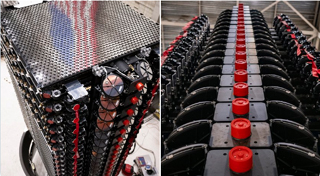
I have no reason to believe that this is anything other than the unvarnished truth, for now; but time has a way of eroding controls; deregulation is the natural direction in such sectors; and you know what they say about healthy competition ...
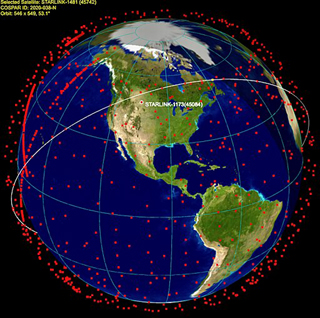
So at what point might the Starlink network begin to offer a much more cost-effective alternative to indigenous broadband and specifically mobile systems around the planet? The fact that the satellite network at the macro level and a future computer-to-brain network at the micro level will both be powered by digital technology won't have escaped everyone's notice.
Such efficient communication systems may well be an essential foundation in Musk's plan to extend the information superhighway beyond the confines of Earth and on to Mars. Once SpaceX's reuseable Starship spacecraft and Super Heavy rocket - collectively referred to as Starship - bring interplanetary travel within the orbit of the general public, ultra-long distance thought-generated communications will probably be a thing. And the Starship website's headline, "The Road To Making Humanity Multiplanetary", seems to position travel by rocket and the highest tech messaging as going hand-in-hand.
But whilst for many the changing of the name of Twitter to X created a tsunami of controversy around the world, another of Musk's vastly strategic long-term goals - to transform that platform into the WeChat of the West - has made scarcely a ripple. This, too, may well have featured prominently behind closed doors in Beijing.
The West has nothing like WeChat. Known as "the everything app", it is one of the key structures holding Chinese society together. What it isn't is something that people only turn to see how their granddaughter is doing with her riding lessons or to view the latest cat video.
1 Elon Musk and the Neuralink Future: Steve Jurvetson, CC BY 2.0  WeChat is the digital framework on which the vast majority of transactional events take place in the country, including text, voice and video messaging, social media, bill paying, hosting of a very wide variety of "mini programs" offered by partner companies, debit card-linked payment services, free "channel" and "Moments" services for individuals, "push" services for verified commercial companies and innumerable additional alternatives. It's analogous (within some limits) to a combination of Facebook, Instagram and Twitter, along with PayPal, Deliveroo and Amazon. Don't forget that Musk, a near-founding father of PayPal until he was ousted, tried to rebrand Paypal as X.com as long ago as 2000.
Musk co-founded OpenAI, an artificial intelligence research lab. Whilst Musk stepped back from an active role, OpenAI continues to be a leader in AI research and development, especially known for advanced language models like GPT (Generative Pre-trained Transformer). More significantly, the rumour mill has it in the last few days, Musk is seeking $6bn in investment capital to challenge Open AI, to graft on another arm to his huge corporate empire. The synergy between Neuralink and an AI arm of X is, again, difficult to over-estimate in terms of its potential ability to transform human life. Musk has spoken of saving memories for future restoration, or downloading them into another body or a robot brain. How could ever-advancing AI interact with such unimaginable developments?
Whilst Musk's acquisition of Twitter marked a significant expansion of his influence into digital communication and media, he has been - and is - involved in various other projects and investments, either through funding, advisory roles or conceptual development. These include contributions to areas like AI ethics, public transportation and environmental conservation.
Thus SolarCity, initially co-founded by Musk's cousins and later acquired by Tesla, focuses on solar energy services and products. It played a significant role in Tesla's expansion into the sustainable energy sector.
Started as a venture to alleviate traffic congestion, The Boring Company constructs tunnels for underground transportation systems. It also proposed the Hyperloop, a high-speed vactrain transportation concept. The very long-term potential for such technologies in the hands of a visionary billionaire or his descendants is out of this world.
Elon Musk's ventures are characterised by their ambition to address global challenges and push technological boundaries. His businesses are diverse yet interconnected, often focusing on sustainability, innovation and the advancement of human capabilities. They are leading edge, intertwined and for the most part highly successful.
WeChat is the digital framework on which the vast majority of transactional events take place in the country, including text, voice and video messaging, social media, bill paying, hosting of a very wide variety of "mini programs" offered by partner companies, debit card-linked payment services, free "channel" and "Moments" services for individuals, "push" services for verified commercial companies and innumerable additional alternatives. It's analogous (within some limits) to a combination of Facebook, Instagram and Twitter, along with PayPal, Deliveroo and Amazon. Don't forget that Musk, a near-founding father of PayPal until he was ousted, tried to rebrand Paypal as X.com as long ago as 2000.
Musk co-founded OpenAI, an artificial intelligence research lab. Whilst Musk stepped back from an active role, OpenAI continues to be a leader in AI research and development, especially known for advanced language models like GPT (Generative Pre-trained Transformer). More significantly, the rumour mill has it in the last few days, Musk is seeking $6bn in investment capital to challenge Open AI, to graft on another arm to his huge corporate empire. The synergy between Neuralink and an AI arm of X is, again, difficult to over-estimate in terms of its potential ability to transform human life. Musk has spoken of saving memories for future restoration, or downloading them into another body or a robot brain. How could ever-advancing AI interact with such unimaginable developments?
Whilst Musk's acquisition of Twitter marked a significant expansion of his influence into digital communication and media, he has been - and is - involved in various other projects and investments, either through funding, advisory roles or conceptual development. These include contributions to areas like AI ethics, public transportation and environmental conservation.
Thus SolarCity, initially co-founded by Musk's cousins and later acquired by Tesla, focuses on solar energy services and products. It played a significant role in Tesla's expansion into the sustainable energy sector.
Started as a venture to alleviate traffic congestion, The Boring Company constructs tunnels for underground transportation systems. It also proposed the Hyperloop, a high-speed vactrain transportation concept. The very long-term potential for such technologies in the hands of a visionary billionaire or his descendants is out of this world.
Elon Musk's ventures are characterised by their ambition to address global challenges and push technological boundaries. His businesses are diverse yet interconnected, often focusing on sustainability, innovation and the advancement of human capabilities. They are leading edge, intertwined and for the most part highly successful.

Desperate human tragedies and gross criminal activities have been key by-products of this "holy" enterprise.
China bans tutors: levelling-up or dumbing down?

Where the arts meet psychology - making sense of synaesthesia
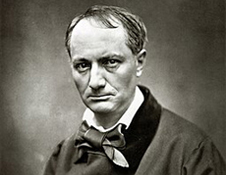
Is mainstream British politics all Right?
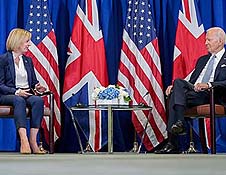
Climate crisis: two reasons to be optimistic?
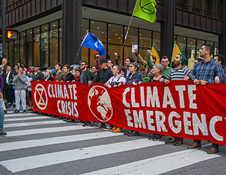
Russia: the West will need to totally seal the border with its neighbour from Hell
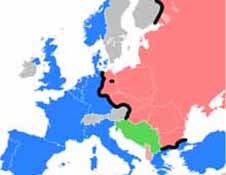
Pomp versus pyres: ways of saying goodbye
